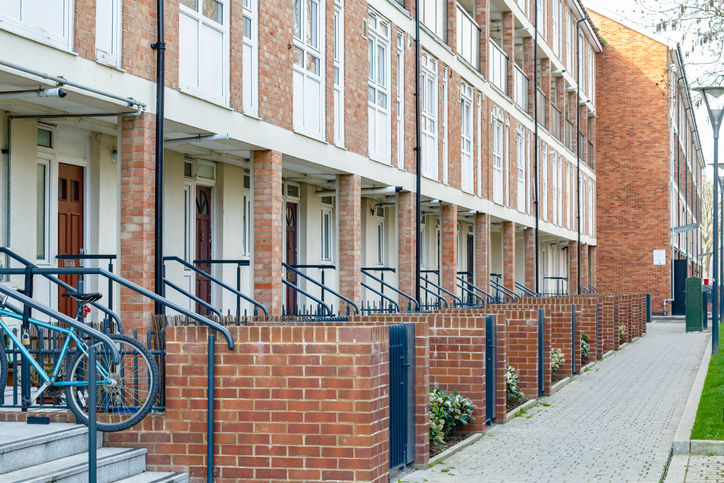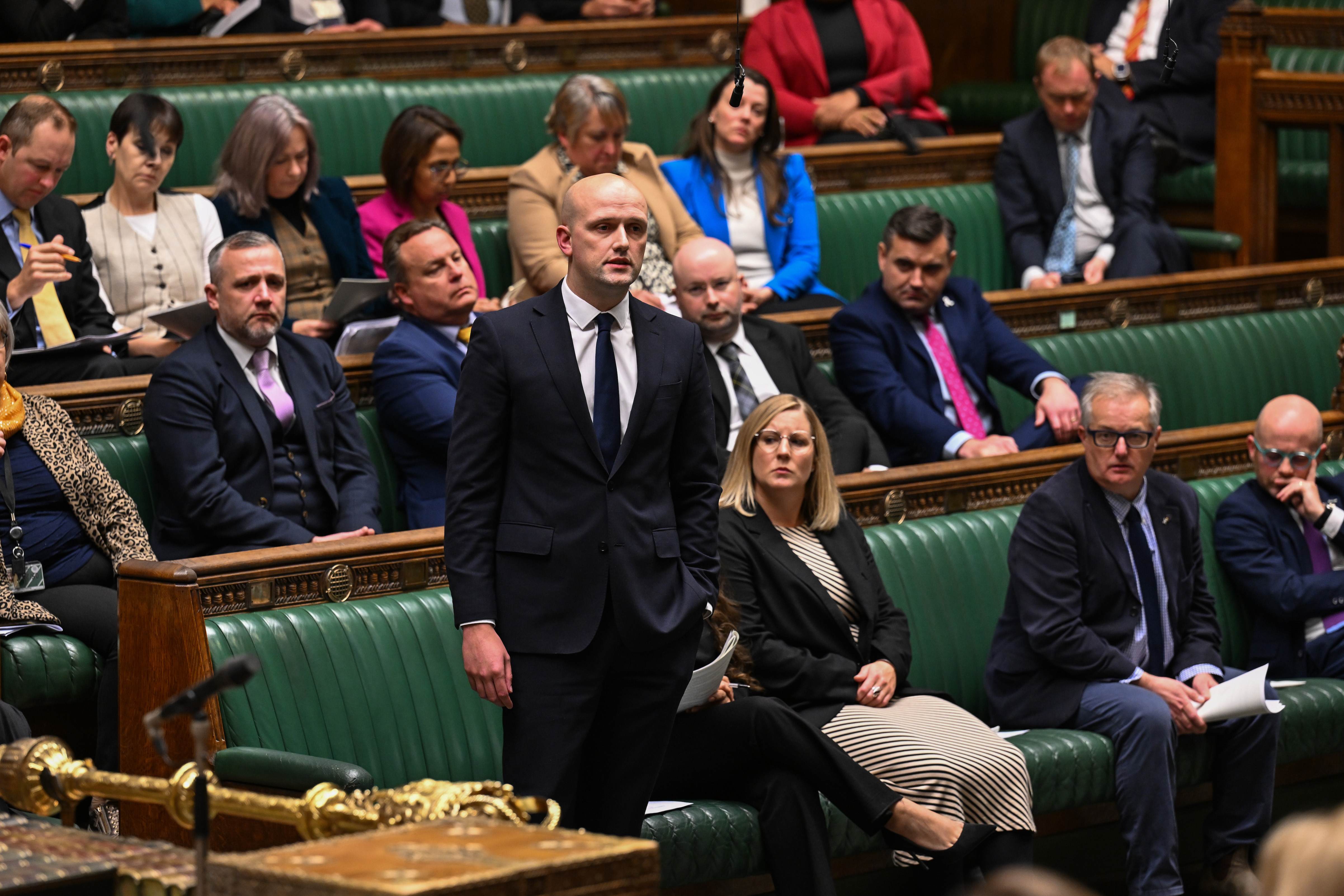What is h b?
is a social security welfare scheme established to help people pay their .
It is sometimes referred to as Allowance or Rebate. The scheme is only open to people living in rented accommodation, including and social , and those on low incomes.
As of 2013, has been administered under the umbrella of Universal Credit. Announced by the Coalition Government in 2010, Universal Credit was designed to simplify and combine six different benefits for working-aged people with low household incomes: -based Employment and , -based , , Child Tax Credit, Working Tax Credit, and .
Under the new Universal Credit allowance, an appropriate amount of is allocated to help meet the costs of household or mortgage interest. Payments are made once a month into the claimant’s bank or building society account.


Under some circumstances (such as arrears) the claimant or may apply for an Alternative Arrangement (APA), which allows the component to be paid directly to the .
With the emergence of the universal credit system, people can now only make a for if they have reached , are receiving a , or are in supported, sheltered or (for example a bed and breakfast, or a refuge).
For private tenants, the maximum Housing Benefit entitlement is based on the Local Housing Allowance (LHA) rate appropriate to a person’s circumstances and level of the broad market rents in a particular local area.

Housing benefit is being steadily incorporated into Universal Credit for those of working age.
The migration to Universal Credit
Universal Credit was introduced to simplify the welfare system and to streamline the administration process for claimants. However, the rollout of Universal Credit has been much slower than anticipated.
Having initially set a date of 2018, the Government has recently postponed the scheme’s full implementation until 2024. During this transition period, is gradually being phased out; most people of cannot make a for – they must claim universal credit instead.
People already receiving will eventually also be moved to the universal credit system. Existing housing benefit claimants may also be asked to move to claiming universal credit if they have a change in circumstances. These include: having a first child, moving to another area and separating from or moving in with a partner.
To access Universal Credit, claimants must be 18 years or older (in some circumstances 16 or 17), under , living in the UK, and hold less than £16,000 in . Where claimants live with a partner, their and taken into account. The , social situation and employment status of other tenants may also affect the allocated allowance; for instance, if an adult is living with their parents, or carries a disability.
Particular controversies around
Delayed payments from the Universal Credit roll out
The delay in rolling out Universal Credit is expected to add more than £500 million to its overall cost. The Department for Work and Pensions commented that the delay was due to there being 900,000 more claimants than expected remaining on the schemes that Universal Credit is replacing.
Unexpectedly high demand from claimants, coupled with lengthy administration procedures, has generated a delay of five weeks or more when receiving a first when transitioning to Universal Credit. While this is manageable for some, many claimants have been driven into arrears, amassed debts of other kinds, and faced threats of eviction. Landlords have also be known to refuse potential tenants experiencing delays in .
gathered by the House of Commons Work and Pensions Committee in 2020 found the delay had forced some claimants to use food banks for the first time in their lives.
In response to such concerns, the Work and Pensions Committee recommended giving vulnerable claimants advanced payments, which did not need to be repaid, if doing so would result in hardship. It also proposed that all new claimants be granted a “starter ” equivalent to three weeks of standard allowance. The Committee reported that, “Our intention is that these payments should mean that people have the money they need for basic living essentials, like food and heating, during the wait.”
The Under Occupancy Debate
Introduced under the Welfare Reform Act 2012, the Under Occupancy Penalty, commonly referred to as The Bedroom Tax, adjusts a claimant’s eligible depending on the number of unused or ‘spare’ rooms in the property. The tax applies only to working-aged people renting from a or registered social .
The reform set out to scale the eligible to the number of tenants living in a rented property, and the relative size of the property.
Claimants would only receive for the number of rooms deemed ‘necessary’ by the Department for Work and Pensions: ‘extra rooms’ would not be covered by the housing benefit. Under new regulations, tenants whose property is considered over-occupied stand to lose 14% of their for one spare room and 25% for two or more spare rooms. Tenants are expected to either make up this deduction, for example by taking on a lodger, or to relocate to smaller accommodation.
The driving force behind the reform was the rising bill which, in 2013, stood at £23 billion. The government believed that, at existing levels, taxpayers were subsidising many social-tenants to live in accommodation that was larger than considered necessary. The reform intended to address this imbalance to allow a better correlation between the number of occupants and the number of rooms in a house or flat.
The introduction of the Under Occupancy Penalty raised heated objection from many, arguing it placed greater financial strain on the most vulnerable members of society. claimants with the lowest and most precarious incomes would be forced to make up the shortfall or downsize. This gave rise to further concern over a lack of smaller properties and the prospect of increased homelessness.
According to figures from the Department of Work and Pensions, as of May 2019, 13% of working-age recipients had experienced a reduction to their weekly on account of the Under Occupancy Penalty.
Benefit fraud
Critics also argue that despite the government’s attempts to simplify the welfare system, fraudulent claims for the element of universal credit remain prevalent. Complexity and bureaucratic inefficiency are widely acknowledged as the primary causes of premeditated fraud and error.
Inadequate Local Housing Allowance Provision
Local Housing Allowance rates determine the maximum amount of financial support that people on low incomes receive to assist with paying rent. Formerly part of Housing Benefit calculations, they are now part of Universal Credit calculations.
In 2011, Local Housing Allowance rates were altered so that rather than covering 50% of local rents, they were reduced to covering just the lowest 30% of local rents.
Leading housing charities argue that these changes have led to Universal Credit failing to support people to afford even the cheapest rents.
Research in 2018 by the Chartered Institute of Housing, and the charity, Crisis, has argued that under- investment in Local Housing Allowance rates has made 92% of the areas in Great Britain unaffordable to private renters. It is argued that at this level of financial support, there are often considerable shortfalls between Local Housing Allowance rates and people’s rents. These force people to find ways to cut back on essentials, or get into debt or rent arrears, in order to pay their rent. It is argued that these significantly increases the risk of homelessness and the use of food banks
It is further noted that a private landlord may often refuse to take on people who are on housing benefit.. However, under discrimination laws, letting agents cannot say it’s the landlord’s choice to refuse tenants on benefits.
The history of h b
Post war Britain: The origin of housing benefit
has its roots in the ‘national assistance scheme’ of 1948.
Throughout the post-war period, successive governments’ approaches to the problem of for people on low incomes involved the construction of more social and offering for costs.
1970s and 1980s: The development of schemes
The arrangements for supported were consolidated for tenants in 1972 under the National Rebate Scheme, and for private and tenants in 1973 under the parallel Allowance Scheme. Both were introduced at a time when finance was being overhauled, with the effect that rents rose sharply.
These schemes did not stem the growing complexity of the system and generated different levels depending on the scheme in question. was subsequently introduced as a replacement for the two measures under the Social Security and Act 19
It was not until 1988, however, that was in full operation, with the integration of in-work and out-of-work systems.
The Act 1988 produced massive upheaval for the system. The Act began the deregulation of private sector rents, and removed the right to an independent assessment of “Fair Rents”. The eligibility of students aged under 25 for was reduced.
1990s: Increased expenditure on housing support
Market deregulation, alongside rising and rents, had led to expenditure tripling from £3.8 billion in 1986-1987 to £12.2 billion in 1997-1998. During the same period, claimant numbers fell from 7 million to 5.5 million.
Attempts were made through the Act 1996 to bring spending under control, through the introduction of “Local Reference Rents” (determinations of average market rents for dwellings of the same size in an area) and the further restriction of eligibility for under 25s.
By the late 1990s, it was clear that was in need of sweeping reform; it was costing too much, it was suffering from high levels of fraud, and it was exercising perverse incentives with regard to people moving into work.
The Labour Government launched a major review in 2000 in the wake of the Green Paper, “Quality and Choice: A Decent Home for All”. The key aims of the reform were to improve customer service, reduce fraud and error, improve work incentives, and explore future options to policy.
2000s: Growing calls for housing benefit reform
In 2002 the Department for Work and Pensions published detailed proposals of future in “Building Choice and Responsibility: A Radical Agenda for “.
Central to the new system was the introduction of a flat-rate system for private sector tenants in receipt of benefits.
The Department of Work and Pensions argued that this would simplify administration and make the system more comprehensible to claimants. New Local Standard Allowances would also cut out the need for every case to be referred to Officers, reducing bureaucracy in the system and reducing the need for fresh claims when a claimant’s working situation changes.
In January 2006 the Government published a welfare reform Green Paper entitled ‘A New Deal for Welfare: Empowering People to Work’ which included further proposals for reforming , in particular rolling out an adjusted version of the to the deregulated private rented sector.
The Welfare Reform Act 2007 introduced changes to the administration of with the national roll-out of to the private rented sector, and a sanction for people who refused to engage in rehabilitation following eviction for anti-social behaviour.
2010s: Reform under the Coalition Government
In May 2010, the new Coalition Government stated that welfare reform was “very much a priority” for them and that reform would be considered in the context of wider welfare reform objectives.
In the following month’s Emergency Budget, Chancellor George Osborne stated that costs had become “completely out of control” having risen from £14 billion to £21 billion within the last decade and that the system was “in dire need of reform”. In the spending review of October 2010, the Conservative Chancellor George Osborne, announced a further series of tightening measures in relation to the rules around .
From April 2011 claimants were only able to claim a based on the 30th percentile of in their area (previously 50th percentile). The age at which most single people could claim for a self-contained one bedroom flat (rather than the shared room rate) was increased to 35 years.
The 2012 Welfare Reform Act outlined plans to incorporate within Universal Credit for those of , a process which was still ongoing at the start of the 2020s. The government also introduced its so called ‘Bedroom Tax’ to deal with the perceived issue of under occupancy.
Statistics
As of February 2019, there were 20 million people claiming benefits of some sort. Two-thirds of claimants were of (13 million).
The gradual rollout of Universal Credit means that the number of people claiming some of the older-style benefits is reducing. By May 2019, the numbers making a h b had reduced to 3.6 million, while 1.1 million households were receiving the element of Universal Credit.
73% of HB recipients (2.6 million) were tenants in the Social Rented Sector and 27% were in the Private Rented Sector (970,000).
As of May 2019, 13% (320,000) of working-age recipients had experienced a reduction to their weekly on account of the Under Occupancy Penalty. The average reduction amount was £15.41.
[Source – Gov.uk – DWP Benefits Statistics, 2019].


























